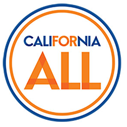Background & Purpose
In recent years, the CAC expanded the arts education grant programs, including the Arts
Integration Training (AIT) grant. Awards of up to $25,000 per year support nonprofit arts
organizations and teaching artists to plan and deliver professional development in arts
integration strategies to classroom teachers, as well as site, district, and county-level
administrators. Arts Integration Training projects should be designed to pave a pathway for increased equitable student learning in, through, and about the arts. This may be realized in a
specific classroom, in all classrooms across a school site, or as a central strategy for a district-
or countywide arts plan. The project must be planned and implemented with collaboration
between a nonprofit arts organization, teaching artists, and the educational entity, with full
commitment from all participants.
Program Goals
Projects should address the following Arts Integration Training program goals:
- Develop long-term, mutually beneficial relationships between arts and educational organizations, teaching artists, and the youth and families in the communities they serve.
- Develop the ability of classroom teachers to design and implement culturally and linguistically responsive, sequential, standards-based arts integration projects throughout the curriculum.
- Develop site, district, and/or county-level administrators’ understanding of how arts integration strategies promote overall student educational outcomes.
- Promote educators’ positive recognition of and respect for the diverse cultural assets of the local community.
Eligible Request Amounts
Applicant organizations can request up to $25,000 for the one-year grant activity period.
Application Restrictions
Organizations may apply for only one (1) 2024 Arts & Youth Grant Program, including:
- Creative Youth Development
- Arts Education Exposure
- Arts Integration Training
Funding Restrictions
- The sum of requests during the same year of funding cannot exceed 50% of the total revenue from the most recently completed fiscal year for organizations with total revenue above $250,000.
- No funding restrictions for organizations with total revenue below $250,000.
Matching Funds
This grant does not require matching funds.
Grant Program Overview
Overview video coming soon.
Office Hours
Virtual office sessions are available to provide technical assistance for the Arts Integration Training and Arts Education Exposure grant programs. Join Arts Program Specialist Emily Taggart and Arts Program Manager Josy Miller as they discuss your organization-specific grant application questions. Prospective applicants are welcome to drop in during any session; registration is not required. The AIT and AEE office hour schedule and links for each session are listed below:
Wednesday, April 10, 2-3 p.m. – Click to join
Thursday, April 25, 9-10 a.m. – Click to join
Monday, May 6, noon-1 p.m. – Click to join
Friday, May 17, 9-10 a.m. Thursday, May 16, 4-5 p.m. – Click to join
Application Links:
Online Application Portal:
calartscouncil.smartsimple.com
2024-25 Grantee Information:
Program Timeline:
| Application Opens | March 28, 2024 |
| Application Deadline | June 6, 2024, 11:59 p.m. |
| Panel Review | Approx. July – August 2024 |
| Funding Decision | Approx. September 2024 |
| Funding Notification | Approx. September 2024 |
| Grant Activity Starts | January 1, 2025 |
| Estimated Arrival of Funds | Approx. January-March 2025 |
| Grant Activity Ends | September 30, 2025 |
| Final Report Deadline | October 30, 2025 |
Staff Assistance
Before contacting staff, check FAQs to see if application questions can be answered. If staff assistance is still required for guidance or clarification, email is the best way to contact Program Specialists. We recommend that you contact staff well in advance of the deadline to ensure you can be accommodated. People who are Deaf, Hard of Hearing, Deaf-Blind, or have difficulty speaking may dial 711 to reach the California Relay Service (CRS). Large print is available upon request.
Staff Contact:
Emily Taggart (she/her)
Arts Program Specialist
artsintegrationgrant@arts.ca.gov
